RIYADH: Ask any Saudi about their favorite brand of instant noodles, and the answer will more likely than not end up being “Indomie.”
Launched in Indonesia in 1972, the quick and tasty noodles made their way to the Kingdom in 1986. Popularized by Indonesian domestic workers hankering for a taste of home, their affordability and unique flavor quickly gave the noodles an almost cult-like status among Saudis and expats alike.
Indomie’s popularity in the Kingdom eventually led to the creation of three factories in Saudi Arabia to meet the product’s high demand. Indomie’s main factory in Jeddah, the largest in the MENA region, produces up to 2 million packs a day in Jeddah alone, since it opened its doors in 1992.
Hospital worker Sarah Al-Suqair told Arab News that Indomie had been an integral part of Saudi kitchens for as long as she could remember, and that preparing and eating the noodles didn’t just take place at home either.

Mie goreng, which translates to ‘fried noodle’ in Indonesian, is the most popular flavor of the Indomie instant-noodle brand.
“I remember a time when Indomie cups were the craze of the day at school, and there was a lot of swapping of Indomie cups for money, toys, trinkets, video games and movies, or even favors like doing homework,” she said. “It was the most delicious form of contraband in school, especially when the teachers caught wind of the craze and started banning them.”
Al-Suqair also recounted the wild ways in which students would prepare the instant cups at school, with little access to the boiling water necessary to create the soup.
“I remember some of my classmates getting suspended for sneaking into the chemistry lab and trying to use a Bunsen burner to boil water for the noodles. Another favorite trick was for two students to enter the teachers’ lounge, where one of them would distract the teacher with something menial while the other surreptitiously tried to sneak water from their kettle,” she said.
FASTFACT
Launched in Indonesia in 1972, the quick and tasty noodles made their way to the Kingdom in 1986.
Nutritionist Leila Bakri told Arab News that her No. 1 weakness was probably a heaping bowl of Indomie mie goreng, something she couldn’t resist no matter how unhealthy it was.
“Instant noodles in general aren’t really healthy food, due to the amount of sodium, MSG, and processed ingredients in them. But I really can’t help it. I grew up eating Indomie at home; I think we all did. It’s easy to make, it’s inexpensive, and really filling. I try to make it healthier by adding chicken, veggies, anything fresh. I even tried making my own version, but the truth is, no matter how much I try, I can never recreate the authentic Indomie flavor,” she said.

Indomie as a brand has secured its place even in the Kingdom’s pop culture sphere. The logo has found its way onto merchandise, such as T-shirts and kitchenware, pins and stickers, and even led to the creation of a short-lived mobile game, Indomie Dash, in 2013. As news of the death of Indomie mie goreng pioneer Nunuk Nuraini broke on Wednesday, people from all over the world flocked to social media to post tributes in her honor, with many fixing up a bowl of noodles and sharing photos to celebrate her life.
Mie goreng, which translates to “fried noodle,” is the most popular flavor of the Indomie instant noodle brand. However, the brand has several flavors and varieties available, from spicy fried noodles, to chicken curry, to beef broth, and even a vegetarian option.
Indofood pioneered instant noodles production in Indonesia, and is one of the largest instant noodle producers in the world. It has regional offices across the globe and Indomie is available in more than 80 countries. Indomie has also experimented with local flavors for several special packets in the countries where the brand is most popular. For example, in Nigeria, one of the largest worldwide consumers of Indomie, a Jollof flavor was released, replicating some of the flavors of the West African rice dish.
The limited availability of those flavors has led to a bizarre black market of instant noodles, with criminally overpriced packs making their way onto Ebay. A pack of five mie goreng packets averages at about SR7.45 ($ 1.9), but a box of 20 packets of Indomie Relish, a flavor released in Nigeria, will run you a whopping $70 (SR 262.5) on Ebay.
Indonesian chefs have also utilized Indomie noodles in unusual ways, such as the creation of an Indomie mie goreng ice cream by West Jakarta-based creamery, Holi Ice Cream.
And the craze hasn’t stopped at food itself. Australian gift vendor Grey Lines put out a line of “Mi Goreng Noodle Scented Candles” in 2019, inspired by the much-loved Indomie brand noodle.
However, other countries will be hard-pressed to match the Kingdom’s love for the noodle.
In an interview with Katadata, a business news site, Indofood CEO Franciscus Welirang said Indomie consumers in Saudi Arabia are now in their second generation. Indomie also dominates 95 percent of the instant noodle market in the Kingdom, despite quite a few contenders, according to the Indonesian Consulate General in Jeddah.
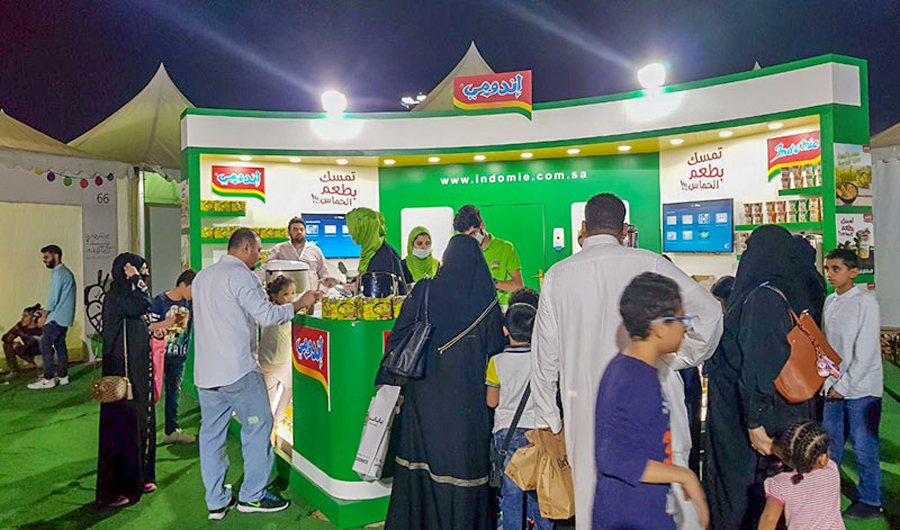

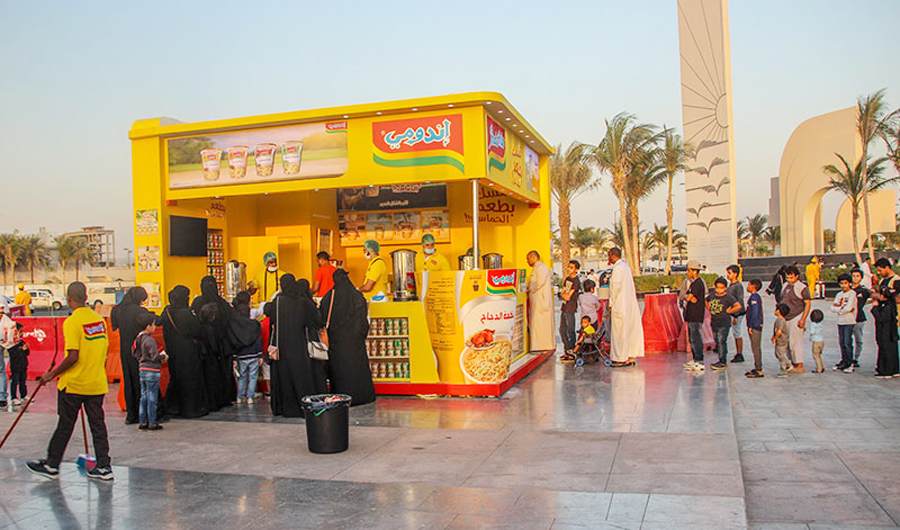
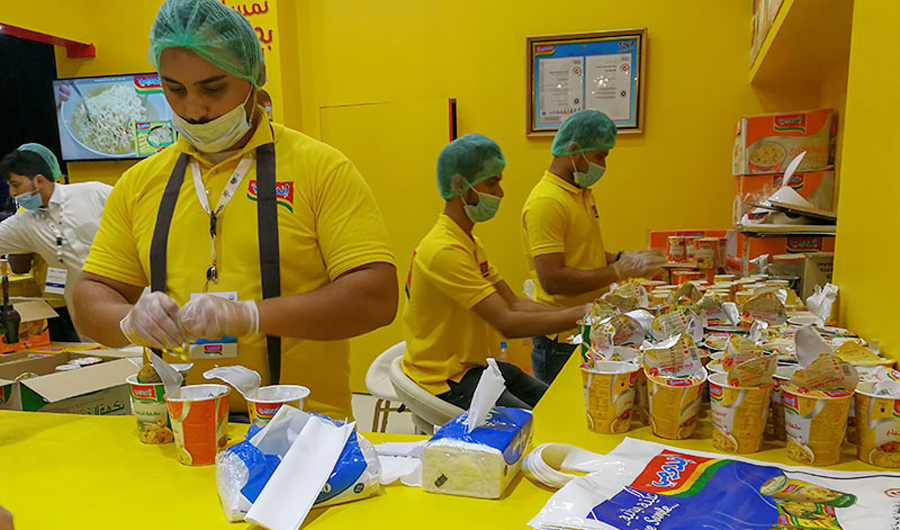
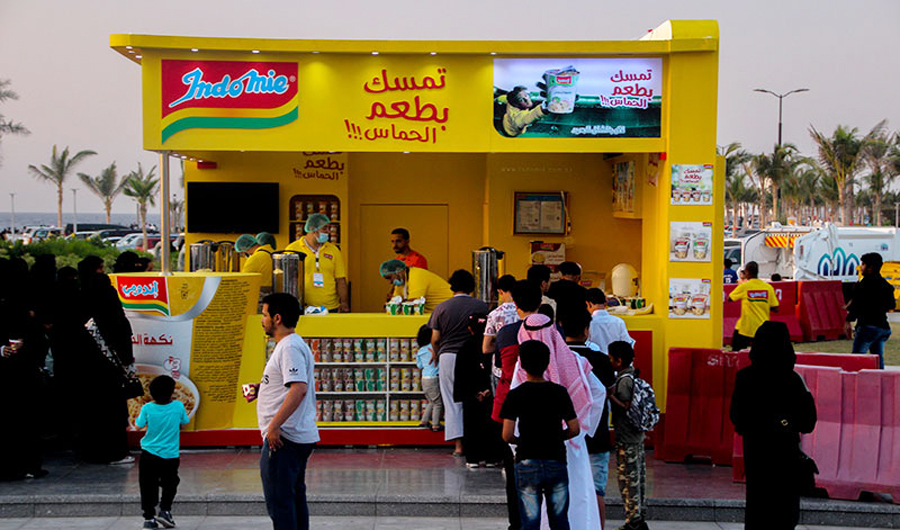
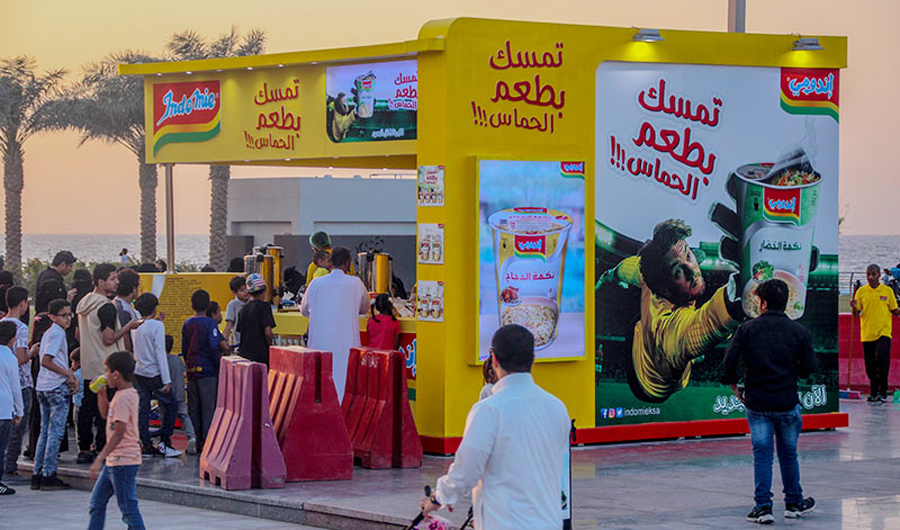
from Saudi Arabia https://ift.tt/2NSSNEF





0 Comments:
Post a Comment